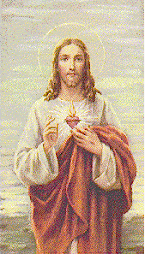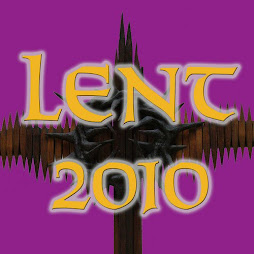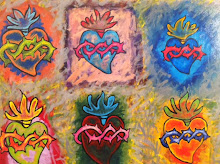Today is the feast of St. Juan Diego! Juan Diego was the humble witness to the Guadalupe apparition. His love for her and for his faith has made him a great example of holiness for all ages! The following comes from thecatholic.org site:
St. Juan Diego was born in 1474 in the calpulli or ward of Tlayacac in Cuauhtitlan, which was established in 1168 by Nahua tribesmen and conquered by the Aztec lord Axayacatl in 1467; and was located 20 kilometers (14 miles) north of Tenochtitlan (Mexico City).
On December 9, 1531, a native Mexican named Juan Diego rose before dawn to walk fifteen miles to daily Mass in what is nowMexico City. Juan lived a simple life as a weaver, farmer, and laborer. That morning, as Juan passed Tepeyac Hill, he heard music and saw a glowing cloud encircled by a rainbow. A woman's voice called him to the top of the hill. There he saw a beautiful youngwoman dressed like an Aztec princess. She said she was the VirginMary and asked Juan to tell the bishop to build a church on that site. She said, "I vividly desire that a church be built on this site, so that in it I can be present and give my love, compassion, help, and defense, for I am your most devoted mother . . . to hear your laments and to remedy all your miseries, pains, and sufferings."
The bishop was kind but skeptical. He asked Juan to bring proof of the Lady's identity. Before Juan could go back to the Lady, he found out his uncle was dying. Hurrying to get a priest, Juan missed his meeting with the Lady. The Lady, however, met him on his path and told him that his uncle had been cured.
She then told Juan to climb to the top of the hill where they first met. Juan was shocked to find flowers growing in the frozen soil. He gathered them in his cloak and took them at once to the bishop.
Juan told the bishop what had happened and opened his cloak. The flowers that fell to the ground were Castilian roses (which were not grown in Mexico). But the bishop's eyes were on the glowing image of the Lady imprinted inside Juan's cloak.
Soon after, a church was built on the site where our Lady appeared, and thousands converted to Christianity. Our Lady of Guadalupe was declared the patroness of the Americas. He died on May 30, 1548, at the age of 74.
Wednesday, December 9, 2015
Wednesday, December 9
Gospel + + + + + MT 11:28-30
Jesus said to the crowds:
“Come to me, all you who labor and are burdened,
and I will give you rest.
Take my yoke upon you and learn from me,
for I am meek and humble of heart;
and you will find rest for yourselves.
For my yoke is easy, and my burden light.”
The word of the Lord.
“Come to me, all you who labor and are burdened,
and I will give you rest.
Take my yoke upon you and learn from me,
for I am meek and humble of heart;
and you will find rest for yourselves.
For my yoke is easy, and my burden light.”
Just a thought:
Imagine a wick that is placed in oil, and then lit. If the oil runs out, the wick burns. As long as there is oil, the wick doesn't burn. As long as we are living in dependence on the power of the Holy Spirit, we don't burn out. The question to ask: what's burning?
.
.
So, are you weary? Are you carrying a heavy burden? Do you need rest? Jesus is inviting those who answer “Yes” to take on His yoke and become His yoke-mate.
It’s tempting for to take these words of Jesus and turn them into a
promise that says, “No matter what your problems, come to Jesus and He will make you burden-free.”
There are those who present Jesus as the remover of every problem. They portray the Christian life as though faith lifts you up and out of the realm of life’s difficulties, sorrows, and disappointments. This, I believe, is a false portrait of discipleship and a mistaken use of Jesus’ words.
Jesus makes it clear that the rest He offers us is not burden-free. He speaks of the putting on His yoke, and yokes are for bearing burdens.
Yokes were common in Jesus’ day. Yokes were made for oxen so that the animals could work together as a team and not be hurt by the burden they carried.
Yoke-making was a skilled craft. Good yokes were made of strong wood that could be made smooth. Any area of roughness on the yoke would cause skin irritation and muscle damage to the oxen as they pulled their load. Yokes also had to be expertly sized of the team for which they were made. If the yoke put the two animals too close together they would jostle and hurt each other. If the yoke put them too far apart they would not be able to share the load as easily as they might if the yoke had had a better fit. The yoke was made perfectly for the one who wore it, the yoke was not a burden, rather, the yoke made life bearable.
Jesus is telling us that He is an expert yoke-maker.
promise that says, “No matter what your problems, come to Jesus and He will make you burden-free.”
There are those who present Jesus as the remover of every problem. They portray the Christian life as though faith lifts you up and out of the realm of life’s difficulties, sorrows, and disappointments. This, I believe, is a false portrait of discipleship and a mistaken use of Jesus’ words.
Jesus makes it clear that the rest He offers us is not burden-free. He speaks of the putting on His yoke, and yokes are for bearing burdens.
Yokes were common in Jesus’ day. Yokes were made for oxen so that the animals could work together as a team and not be hurt by the burden they carried.
Yoke-making was a skilled craft. Good yokes were made of strong wood that could be made smooth. Any area of roughness on the yoke would cause skin irritation and muscle damage to the oxen as they pulled their load. Yokes also had to be expertly sized of the team for which they were made. If the yoke put the two animals too close together they would jostle and hurt each other. If the yoke put them too far apart they would not be able to share the load as easily as they might if the yoke had had a better fit. The yoke was made perfectly for the one who wore it, the yoke was not a burden, rather, the yoke made life bearable.
Jesus is telling us that He is an expert yoke-maker.
Try Him on for size!
+
+
Tuesday, December 1, 2015
Oh, I wish I had seen this during the summer of 2014 ....
“That feeling of discomfort you have after listening to a sermon is called a conscience”
* * * * *
This story is making the rounds of social media: the reaction of a college student to a sermon that he said made him feel bad.
To which Dr. Everett Piper, president of Oklahoma Wesleyan University, replied, in effect: “Tough.”
+
His full response is reprinted below, from the university website:
+
This past week, I actually had a student come forward after a university chapel service and complain because he felt “victimized” by a sermon on the topic of 1 Corinthians 13. It appears that this young scholar felt offended because a homily on love made him feel bad for not showing love. In his mind, the speaker was wrong for making him, and his peers, feel uncomfortable.
I’m not making this up. Our culture has actually taught our kids to be this self-absorbed and narcissistic. Any time their feelings are hurt, they are the victims. Anyone who dares challenge them and, thus, makes them “feel bad” about themselves, is a “hater,” a “bigot,” an “oppressor,” and a “victimizer.”
+
I have a message for this young man and all others who care to listen. That feeling of discomfort you have after listening to a sermon is called a conscience. An altar call is supposed to make you feel bad. It is supposed to make you feel guilty. The goal of many a good sermon is to get you to confess your sins—not coddle you in your selfishness. The primary objective of the Church and the Christian faith is your confession, not your self-actualization.
+
So here’s my advice:
+
If you want the chaplain to tell you you’re a victim rather than tell you that you need virtue, this may not be the university you’re looking for. If you want to complain about a sermon that makes you feel less than loving for not showing love, this might be the wrong place.
If you’re more interested in playing the “hater” card than you are in confessing your own hate; if you want to arrogantly lecture, rather than humbly learn; if you don’t want to feel guilt in your soul when you are guilty of sin; if you want to be enabled rather than confronted, there are many universities across the land (in Missouri and elsewhere) that will give you exactly what you want, but Oklahoma Wesleyan isn’t one of them.
+
At OKWU, we teach you to be selfless rather than self-centered. We are more interested in you practicing personal forgiveness than political revenge. We want you to model interpersonal reconciliation rather than foment personal conflict. We believe the content of your character is more important than the color of your skin. We don’t believe that you have been victimized every time you feel guilty and we don’t issue “trigger warnings” before altar calls.
Oklahoma Wesleyan is not a “safe place”, but rather, a place to learn: to learn that life isn’t about you, but about others; that the bad feeling you have while listening to a sermon is called guilt; that the way to address it is to repent of everything that’s wrong with you rather than blame others for everything that’s wrong with them. This is a place where you will quickly learn that you need to grow up.
+
This is not a day care.
+
This is a university!
+
* * * * *
This story is making the rounds of social media: the reaction of a college student to a sermon that he said made him feel bad.
To which Dr. Everett Piper, president of Oklahoma Wesleyan University, replied, in effect: “Tough.”
+
His full response is reprinted below, from the university website:
+
This past week, I actually had a student come forward after a university chapel service and complain because he felt “victimized” by a sermon on the topic of 1 Corinthians 13. It appears that this young scholar felt offended because a homily on love made him feel bad for not showing love. In his mind, the speaker was wrong for making him, and his peers, feel uncomfortable.
I’m not making this up. Our culture has actually taught our kids to be this self-absorbed and narcissistic. Any time their feelings are hurt, they are the victims. Anyone who dares challenge them and, thus, makes them “feel bad” about themselves, is a “hater,” a “bigot,” an “oppressor,” and a “victimizer.”
+
I have a message for this young man and all others who care to listen. That feeling of discomfort you have after listening to a sermon is called a conscience. An altar call is supposed to make you feel bad. It is supposed to make you feel guilty. The goal of many a good sermon is to get you to confess your sins—not coddle you in your selfishness. The primary objective of the Church and the Christian faith is your confession, not your self-actualization.
+
So here’s my advice:
+
If you want the chaplain to tell you you’re a victim rather than tell you that you need virtue, this may not be the university you’re looking for. If you want to complain about a sermon that makes you feel less than loving for not showing love, this might be the wrong place.
If you’re more interested in playing the “hater” card than you are in confessing your own hate; if you want to arrogantly lecture, rather than humbly learn; if you don’t want to feel guilt in your soul when you are guilty of sin; if you want to be enabled rather than confronted, there are many universities across the land (in Missouri and elsewhere) that will give you exactly what you want, but Oklahoma Wesleyan isn’t one of them.
+
At OKWU, we teach you to be selfless rather than self-centered. We are more interested in you practicing personal forgiveness than political revenge. We want you to model interpersonal reconciliation rather than foment personal conflict. We believe the content of your character is more important than the color of your skin. We don’t believe that you have been victimized every time you feel guilty and we don’t issue “trigger warnings” before altar calls.
Oklahoma Wesleyan is not a “safe place”, but rather, a place to learn: to learn that life isn’t about you, but about others; that the bad feeling you have while listening to a sermon is called guilt; that the way to address it is to repent of everything that’s wrong with you rather than blame others for everything that’s wrong with them. This is a place where you will quickly learn that you need to grow up.
+
This is not a day care.
+
This is a university!
+
Tuesday, December 1
+
He who runs from God in the morning will scarcely find Him the rest of the day.
John Bunyan
+
Gospel . . . LK 10:21-24
Jesus rejoiced in the Holy Spirit and said,
“I give you praise, Father, Lord of heaven and earth,
for although you have hidden these things
from the wise and the learned
you have revealed them to the childlike.
Yes, Father, such has been your gracious will.
All things have been handed over to me by my Father.
No one knows who the Son is except the Father,
and who the Father is except the Son
and anyone to whom the Son wishes to reveal him.”
Turning to the disciples in private he said,
“Blessed are the eyes that see what you see.
For I say to you,
many prophets and kings desired to see what you see,
but did not see it,
and to hear what you hear, but did not hear it.”
.
The word of the Lord
+
A friend of mine took his small son with him to town one day to run some errands. When lunch time arrived, the two of them went to a familiar diner for a sandwich. The father sat down on one of the stools at the counter and lifted the boy up to the seat beside him. They ordered lunch, and when the server brought the food, the dad said, "Son, we'll just have a silent prayer." Dad got through praying first and waited for the boy to finish his prayer, but he just sat with his head bowed for an unusually long time.
When he finally looked up, his father asked him, "What in the world were you praying about all that time?" With the innocence and honesty of a child, he replied, "How do I know? It was a silent prayer."
I’m not so sure the young boy’s intention with the prayer but I think that it could well be good practice to get lost in our prayer from time to time, to allow prayer to meander wherever it might like to go, providing, of course, that we keep the prayer focused on God.
Have you prayed already today? It’s certainly not too late. You ever ask God, in your prayer, where God might like you to go in prayer? Try it sometime.
+
.
He who runs from God in the morning will scarcely find Him the rest of the day.
John Bunyan
+
Gospel . . . LK 10:21-24
Jesus rejoiced in the Holy Spirit and said,
“I give you praise, Father, Lord of heaven and earth,
for although you have hidden these things
from the wise and the learned
you have revealed them to the childlike.
Yes, Father, such has been your gracious will.
All things have been handed over to me by my Father.
No one knows who the Son is except the Father,
and who the Father is except the Son
and anyone to whom the Son wishes to reveal him.”
Turning to the disciples in private he said,
“Blessed are the eyes that see what you see.
For I say to you,
many prophets and kings desired to see what you see,
but did not see it,
and to hear what you hear, but did not hear it.”
.
The word of the Lord
+
A friend of mine took his small son with him to town one day to run some errands. When lunch time arrived, the two of them went to a familiar diner for a sandwich. The father sat down on one of the stools at the counter and lifted the boy up to the seat beside him. They ordered lunch, and when the server brought the food, the dad said, "Son, we'll just have a silent prayer." Dad got through praying first and waited for the boy to finish his prayer, but he just sat with his head bowed for an unusually long time.
When he finally looked up, his father asked him, "What in the world were you praying about all that time?" With the innocence and honesty of a child, he replied, "How do I know? It was a silent prayer."
I’m not so sure the young boy’s intention with the prayer but I think that it could well be good practice to get lost in our prayer from time to time, to allow prayer to meander wherever it might like to go, providing, of course, that we keep the prayer focused on God.
Have you prayed already today? It’s certainly not too late. You ever ask God, in your prayer, where God might like you to go in prayer? Try it sometime.
+
.
Subscribe to:
Comments (Atom)































